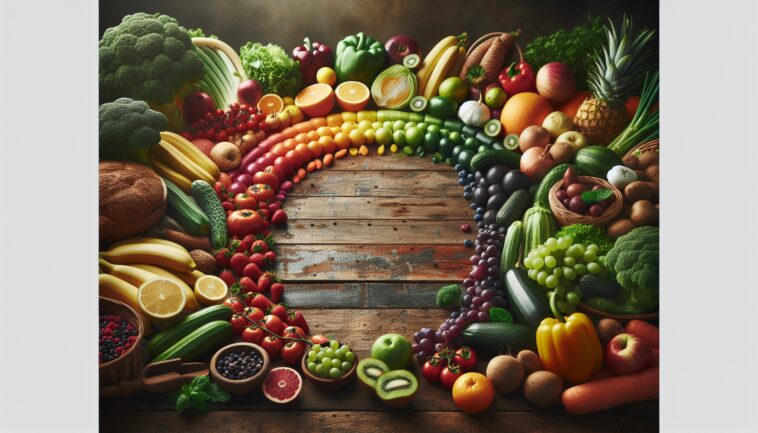Table of Contents
The power of colorful foods
When you think about your next grocery run, consider the vibrant spectrum of colors available in the produce aisle. Eating a variety of colorful foods not only makes your meals visually appealing but also packs your diet with essential nutrients.
The concept of a “rainbow diet” emphasizes the importance of consuming fruits and vegetables in every hue, from red and orange to green and purple. This approach is a stark contrast to the monotonous “beige diet” that often dominates our plates, filled with processed foods that lack nutritional value.
Why heart health matters
Heart disease remains one of the leading health concerns globally, and while factors like genetics and age play a role, your food choices can significantly impact your cardiovascular health. Incorporating heart-healthy foods into your diet can help manage cholesterol levels, blood pressure, and weight.
By making conscious decisions about what you eat, you can take control of your heart health and reduce your risk of disease.
Top heart-healthy foods to include
1. Avocados: These creamy fruits are rich in healthy fats, particularly monounsaturated fats, which can help lower bad cholesterol levels.
They also provide fiber, potassium, and vitamins E and C, all essential for maintaining healthy blood pressure and heart function.
2. Leafy greens: Spinach, kale, and Swiss chard are nutrient powerhouses. Spinach alone offers over 100% of your daily vitamin K needs, crucial for blood clotting.
These greens are versatile and can be added to smoothies, salads, or cooked dishes.
3. Nuts: Almonds and walnuts are fantastic sources of healthy fats, fiber, and protein. Regular consumption can improve artery health and reduce inflammation, which is vital for heart health.
Just remember to enjoy them in moderation to reap the benefits without excess calories.
4. Whole grains: Opt for brown rice or quinoa instead of white rice. Whole grains are packed with fiber, which aids digestion and helps control cholesterol levels. They also provide essential nutrients like magnesium and B vitamins.
5. Fatty fish: Salmon is a superstar when it comes to omega-3 fatty acids, known for their anti-inflammatory properties. Aim to include two servings of fatty fish in your diet each week to support heart health.
6. Berries: Strawberries, blueberries, and raspberries are not only delicious but also rich in antioxidants and fiber. They can help regulate blood sugar levels and make a perfect addition to breakfast or snacks.
7. Lean proteins: Skinless chicken breast is a great source of lean protein that supports muscle health without the added saturated fats found in other meats. Pair it with colorful veggies for a balanced meal.
8. Hummus: Made from chickpeas and olive oil, hummus is a heart-healthy dip that provides fiber and healthy fats. It’s perfect for snacking or as a spread.
9. Beans and legumes: These plant-based proteins are excellent for heart health, providing soluble fiber that helps manage cholesterol levels.
10. Garlic: This flavorful ingredient not only enhances dishes but also offers anti-inflammatory benefits that support cardiovascular health.
By filling your grocery cart with these colorful, nutrient-dense foods, you can create meals that are not only good for your heart but also exciting and satisfying. Remember, a vibrant plate is a happy plate!




